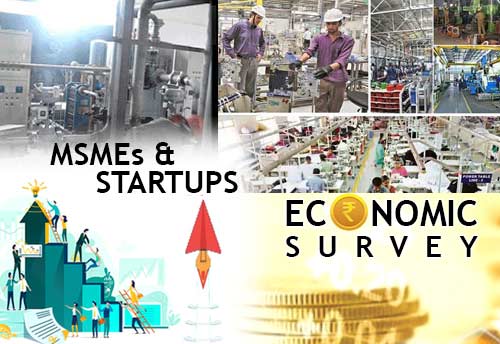Economic Survey 2022: MSMEs and start-ups eye space sector
Updated: Jan 31, 2022 01:02:14pm

Economic Survey 2022: MSMEs and start-ups eye space sector
New Delhi, Jan 31 (KNN) According to the Economic Survey 2022-23, in just one year the IN-SPACe board has received close to 40 proposals from large industries, MSMEs, start-ups and academia covering broad range of activities in space domain – cutting across both upstream such as launch vehicle/satellite manufacturing and downstream such Earth Observation applications, communications, etc.
Focusing on the global shift in the space activities the Government undertook reforms in space sector in 2020, which envisage the private sector to act as a co-traveller in the exploration of outer space and also in providing space-based services, said the survey.
It highlighted the reforms initiated by the government such as empowering New Space India Limited (NSIL)-the Public Sector Undertaking (PSU) in this sector –to “own” the operational launch vehicles and space assets of ISRO.
Further, the present supply-based model was changed to demand-driven model, wherein NSIL shall act as aggregator of user requirements and obtain commitments. The first outcome in this regard came recently to the fore with Tata Sky signing an MoU with NSIL for utilizing the capacity on board the upcoming communication satellite GSAT-24, to be built by ISRO and launched by Arianespace, noted the survey.
The second important step was the creation of an independent nodal agency under the Department of Space, Indian National Space Promotion and Authorization Centre (IN-SPACe), which shall act as the promoter and regulator of space activities in India by NGPEs (Non-government/private entities). This body has been tasked with prioritising the launch manifest as per the requirements of NSIL, ISRO and NGPEs. It shall also allow utilization of capital intensive DOS-owned facilities at reasonable cost by the private sector.
The third vital step has been in providing a predictable, forward-looking, well defined and enabling regulatory regime for space activities in the country. The first to be updated were the SpaceCom and SpaceRS policies, further liberalizing the traditional Satellite Communication and Remote Sensing sectors, respectively, thus enabling entrepreneurs/industries to take up end- to-end activities in these domains.
Five private satellites have been tested at ISRO facilities, four student satellites were launched aboard the PSLV C-51. The national registration mechanism for space objects has been implemented, with five satellites registered.
A total of six MoUs have been signed with private/academic entities for sharing technical expertise and facilities.












